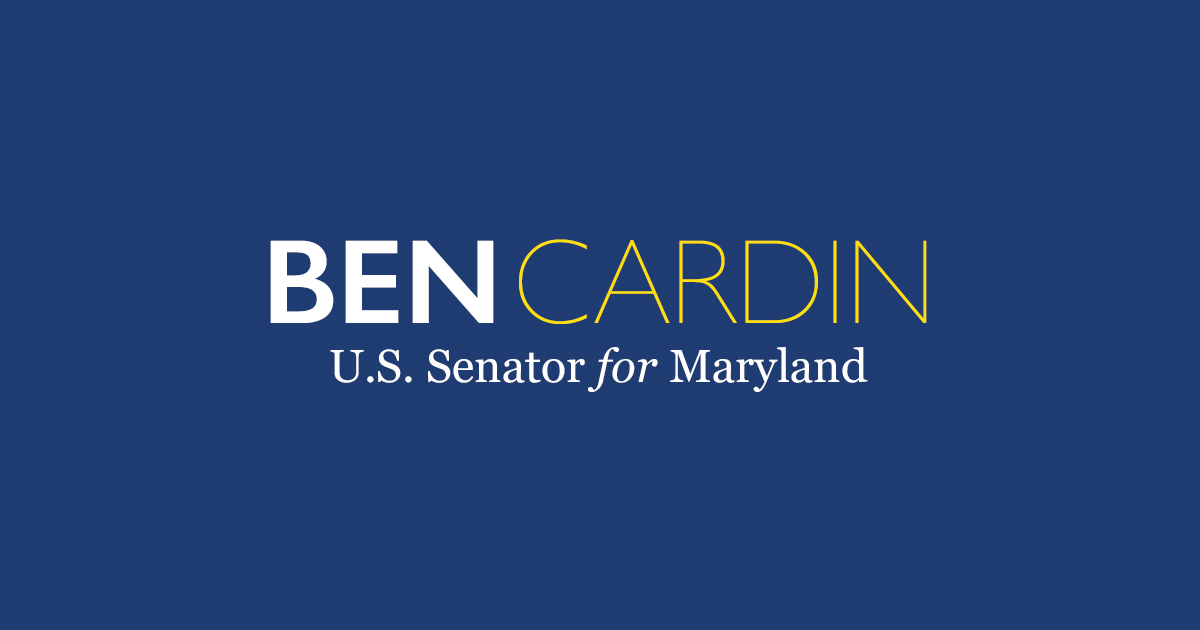Source: United States Senator for Maryland Ben Cardin
April 07, 2022
WASHINGTON – U.S. Senate Committee on Small Business & Entrepreneurship Chair Ben Cardin (D-Md.) and U.S. Senator Roger Wicker (R-Miss.) today urged passage of their legislation to replenish the Restaurant Revitalization Fund (RRF) and provide relief to small businesses in other industries that have experienced significant declines in revenue, including gyms, minor league sports, buses and ferries, among others.
“More than two years into the pandemic, hundreds of thousands of restaurants and other small businesses are still fighting to survive, while thousands have already closed their doors for good,” Senator Cardin said. “Congress cannot mistake the hopeful signs of recovery in our economy for signs that restaurants, bars, and other hard-hit small businesses no longer need help. Congress must pass this bill so the SBA can provide relief to the more than 177,000 RRF applicants who remain unfunded and to other hard hit industries.”
“Congress took action to provide much needed relief to restaurants and other businesses during the height of the pandemic, but the initial program left thousands of eligible restaurants and their employees without any assistance. As our economy recovers from a difficult two years, it is important to replenish this fund as a matter of fairness,” Senator Wicker said.
Last August, Cardin, Wicker and Senators Lisa Murkowski (R-Alaska), Maria Cantwell (D-Wash.), Joni Ernst (R-Iowa), Kyrsten Sinema (D-Ariz.), Bill Cassidy (R-La.), Debbie Stabenow (D-Mich.), Cindy Hyde-Smith (R-Miss.), and Chuck Schumer (D-N.Y.) introduced bipartisan legislation to provide additional funding to RRF.
The program was created in March 2021 as part of the American Rescue Plan and provided a $28.6 billion appropriation to provide eligible entities with grants equal to their pandemic-related revenue loss up to $10 million and no more than $5 million per location. On June 30, 2021, the Small Business Administration (SBA) announced the closure of RRF due to the exhaustion of funds. SBA also announced that more than 278,000 applications were submitted to the program, but the agency was only able to fund approximately 101,000 of them.
The Cardin-Wicker measure would provide an additional $40 billion to RRF, which is enough to provide all applicants that have not received any assistance with full grants. The measure also includes enhanced auditing requirements for new and existing grants to prevent fraud, as well as new transparency and customer service requirements to ensure that SBA shares information with Congress and the public.
There are other bipartisan small business assistance proposals in the bill, including:
Grants for Gyms: $2 billion for aid to gyms that have suffered losses of greater than 25 percent. Based on the bipartisan GYMS Act introduced by Senators Tammy Duckworth (D-Ill.) and Jerry Moran (R-Kan.).
Grants for Minor League Sports Teams: $500 million for aid to minor league sports teams that lost at least 50 percent of their revenue during the first year of the pandemic. Based on the bipartisan Minor League Baseball Relief Act introduced by Senators Richard Blumenthal (D-Conn.), Marsha Blackburn (R-Tenn.), Tim Kaine (D-Va.), and Mark Warner (D-Va.).
Grants for Live Venue Service and Support Companies: $2 billion for aid to businesses that support live events that have suffered losses of greater than 25 percent. Based on the bipartisan MUSIC Act introduced by Senators Marsha Blackburn (R-Tenn.), Catherine Cortez Masto (D-Nev.), Bill Hagerty (R-Tenn.), Amy Klobuchar (D-Minn.), and Raphael Warnock (D-Ga.).
Grants for Border Businesses: $1.415 billion for aid to very small businesses located in areas adjacent to land ports of entry that were subject to closure during the pandemic. Based on the bipartisan Border Business COVID-19 Rescue Act introduced by Senators Mark Kelly (D-Ariz.) and John Cornyn (R-Texas).
Grants for Exclave Communities: $85 million to small businesses located in communities in Alaska, Washington, and Minnesota were not accessible from the United States during the pandemic due to border closures, including $75 million for communities in southeastern Alaska that were completely cut off.
Grants for Buses and Ferries: Provides an additional $2 billion for grant funding to the Coronavirus Economic Relief for Transportation Services (CERTS) program for buses and ferries, including commuter buses, school buses, charter buses, and passenger ferries. Based on the bipartisan CERTS legislation proposed by Senators Susan Collins (I-Maine) and Jack Reed (D-R.I.).
Save Our Stages Extension Act: Extends the date by which Shuttered Venue Operator Grant recipients may incur reimbursable expenses. Bill was introduced by Senators Amy Klobuchar (D-Minn.) and John Cornyn (R-Texas).
PPP Transportation Contractor Fix: Prevents certain government contractors that received PPP loans from being unfairly disqualified from loan forgiveness. Introduced by Senators Mike Braun (R-Ind.) and Tammy Duckworth (D-Ill.).
Offsets: Offsets include $5 billion in unused funds remaining in the Paycheck Protection Program.
S.4088 is supported by more than two dozen business advocacy and trade groups, including Small Business Majority, the Exhibitions and Conferences Alliance, the National School Transportation Association, Minor League Baseball, American Bus Association, United Motorcoach Association, Crossfit, Spokane Valley Chamber of Commerce, Seattle Restaurant Alliance, Seattle Metropolitan Chamber of Commerce, International Association of Exhibitions and Events, Experiential Designers and Producers Association, Exhibitor Appointed Contractor Association, Exhibition Services and Contractors Association, and the Society of Independent Show Organizers
